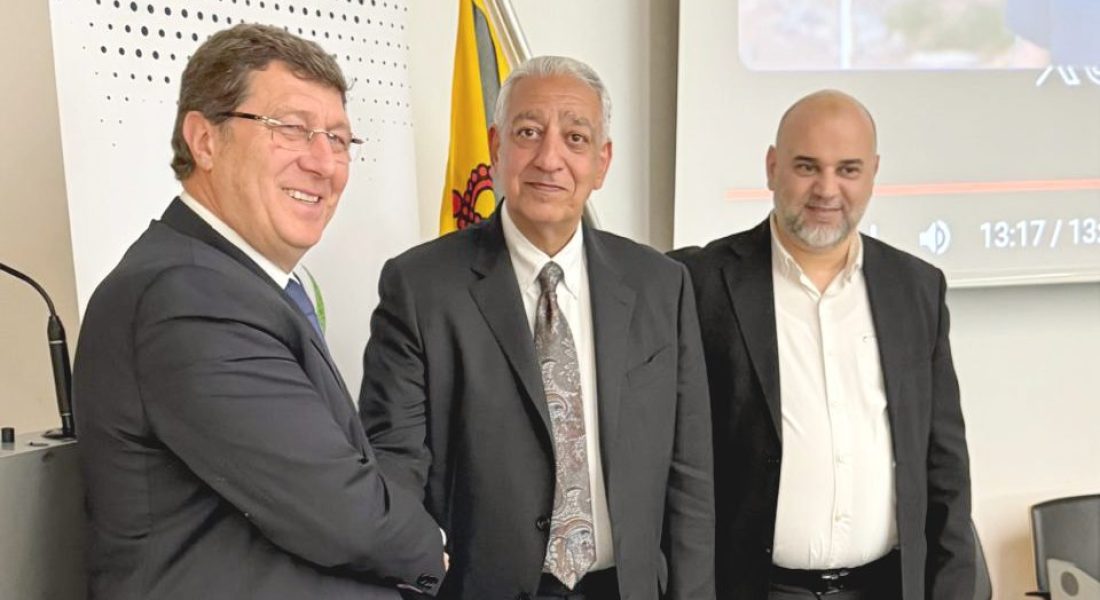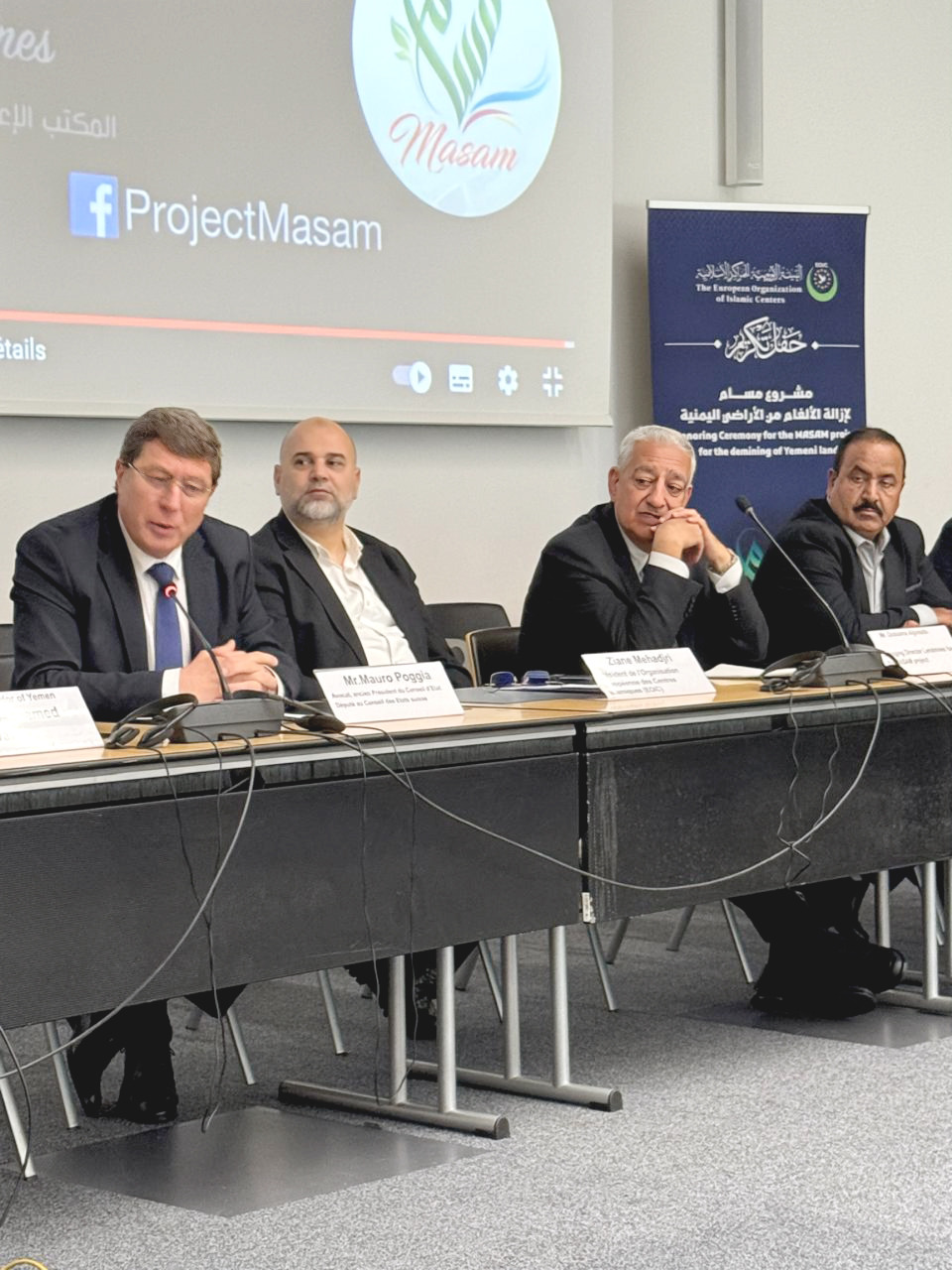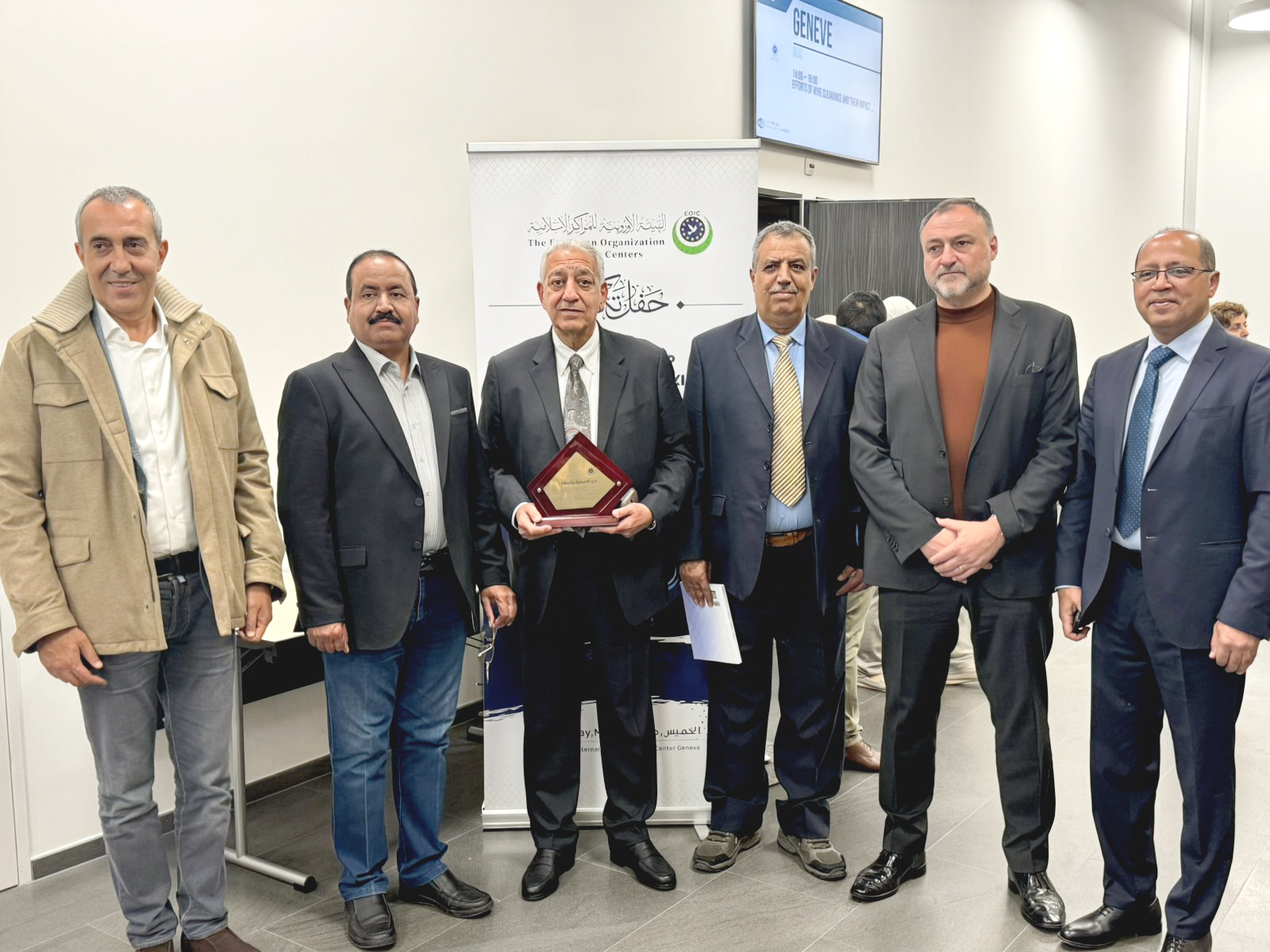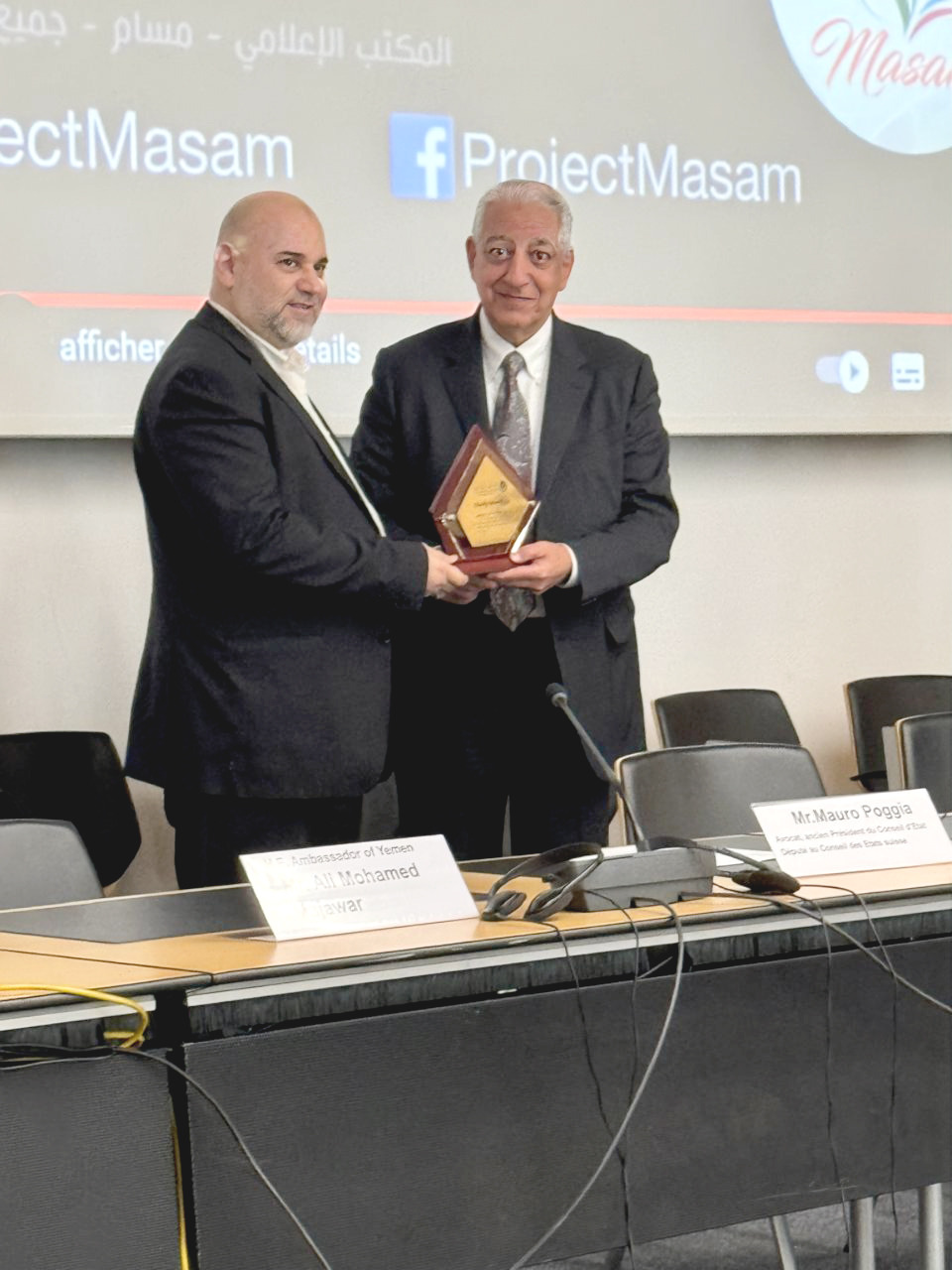Project Masam’s Managing Director has warned that Yemen is experiencing a real disaster threatening the lives of civilians during a high-level summit in Switzerland, pointing to the need for the international community to understand the magnitude of the landmine catastrophe in Yemen.
The managing director Ousama Algosaibi delivered his speech yesterday (2 May 2024) during a conference held on mine clearance efforts and their impact on peace and human security organised by the European Organization of Islamic Centers (EOIC) in Geneva at the UN international conference building.
In his address, Algosaibi explained that the project’s estimates the number of landmines planted across Yemen to amount to two million mines, pointing out that the Houthi militia continues to plant mines and explosive devices in what he described as a complete disregard of international human rights law and protocols.
Although the project specialises in dealing with landmines on land, Algosaibi revealed that at the beginning of the year one of the project teams, in cooperation with the Yemen Executive Mine Action Centre (YEMAC), examined a fishing boat found drifting off the coast of the strategic Bab al-Mandab and towed by locals. After preliminary inspections, the team discovered that the boat contained a huge explosive device containing 25 kg of the highly explosive (C4), and about 50 kg of (TNT) in addition to 25 barrels of gasoline with a capacity of 20 litres each – to date the largest improvised explosive device discovered by YEMAC and Project Masam. The team safely removed these components and disposed of the improvised explosive devices.
“Such incidents confirm the militia’s determination to disrupt international trade in one of the world’s most important straits; thus harming the local economy based on fishing activities, in addition to polluting the marine environment,” he said in his speech.
“Here, in Yemen, we are not dealing with conventional minefields, rather we respond to reports fields of mines planted with no discernible pattern. We have mixed minefields and non-patterned anti-personnel mine fields. We have landmines and IEDs planted under school floorboards, inside families’ ovens, inside civilian cars, outside the entrance to homes, inside trees. We have rock mines and other IEDs made to resemble tree trunks, breeze-blocks, and we have evidence of IEDs using tuna or bean cans to contain the explosive content”, he said.
Algosaibi touched on the challenges facing Project Masam’s demining teams, explaining that in addition to the huge quantities of mines, improvised explosive devices (IEDs), and unexploded ordnance, threats include natural factors such as the environment and weather, as well as the rugged geographical nature of areas where mine laying operations by the Houthi militia have been and are still active.
The managing director, who has been leading the humanitarian landmine clearance operation since June 2018, explained that the project’s demining teams work on steep mountain slopes and rugged peaks, and perform their tasks in vast expanses of land along the coasts that have a rocky nature and dense vegetation.
In addition, he said, the project is committed to applying the highest security and technical standards during its work to maintain the safety of its members, adding that “with militias currently planting new mines, our work is set to continue to be difficult but we are determined to play our role and help free Yemen of landmines”.
During his speech, Algosaibi referred to the extensive number of personal stories and tragedies Project Masam’s deminers and media team face during their work in mine-affected areas, which he said will serve as proof of the Houthis’ criminal responsibility, and as evidence when it comes to get accountability and restorative justice.
Since its inception in mid-2018, the project has cleared 438,413 anti-personnel and anti-tank mines, unexploded ordnance, and IEDs, he said.
At the end of the conference, in which political figures and experts from international organisations participated, Algosaibi received two awards and certificates of appreciation from Dr. Mohajeri Zayan, the head of the EOIC in recognition of his distinguished leadership of one of the largest humanitarian landmine clearance projects operating in Yemen, and the humanitarian work provided by Project Masam across liberated areas of Yemen.
Read the full speech here.




